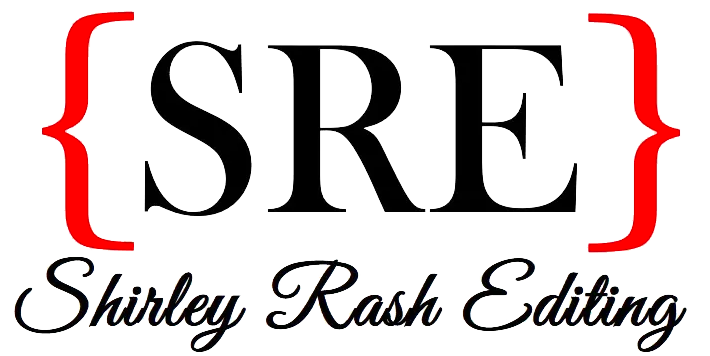Earlier this week, I wrote about verb tense and knowing when to use past perfect tense in historical writing. This was in response to Laura asking me for a post on verb tense in historical writing. Thanks again to Laura for the great suggestion for a series of posts!
This time, we’re going to focus on whether it’s okay to use present tense in historical writing, which generates a lot of debate and controversy within history writing circles.
Past or present?
When I was getting a history degree as an undergraduate, I was always taught to write my history papers in the past tense. This was true for term papers, as well as for the sizeable seminar paper I was required to submit as the capstone for my degree.
This requirement differed from what I’d always been taught in literature classes, which was to discuss texts in present tense. So, in a literature paper, no matter how old of a text that I was analyzing, I always wrote about it in the present tense.
As someone who double-majored in both English and history, I’ll confess to sometimes confusing myself when I was working on papers in each discipline, but the requirements make sense for each field. For historians, traditionally, the past is the past, and writing about it now doesn’t make it become the present. On the flip side, literature studies approach their field from a less time-dependent perspective—the elements that one can analyze from a text are not constrained by the time period in which you’re writing.
So, I learned pretty quickly to write about novels and short stories and poems in present tense for literature classes and then write about historical events and primary and secondary sources in past tense for my history classes. Sometimes, that meant writing about novels in past tense for history classes.
In recent years, though, it’s been increasingly more common for historians and historical nonfiction writers to use present tense, which is referred to as historical present when applied to events that happened in the past. Chicago Manual of Style, the default style guide for American publishing, has no objection to the use of historical present.
As you can imagine, this change in approach to tense is not universally accepted.
Battle lines are drawn
If you do a deep dive on the internet about present tense in historical nonfiction writing, you will find a lot of strong opinions on both sides.
What both sides agree on (but very much disagree on the desirability of) is that present tense brings an immediacy to discussions of the past that past tense doesn’t.
Let’s look at our examples from last time when we were playing around with past versus present tense.
“Hitler invaded Poland in September 1939” versus “Hitler invades Poland in September 1939.”
“In 1953, Sir Edmund Hillary and Tenzing Norgay successfully summited Everest” versus “In 1953, Sir Edmund Hillary and Tenzing Norgay successfully summit Everest.”
“General Pickett’s men advanced against Cemetery Ridge” versus “General Pickett’s men advance against Cemetery Ridge.”
For proponents of present tense, the advantage here is that it puts you, the reader, right there and makes the event more vivid and immediate to you, no matter how many years, decades, or centuries have passed since then. You’re right there as tanks roll through Poland, as Hillary and Norgay set foot on the highest mountain in the world, and as soldiers start advancing across a brutal battlefield.
It’s a standard narrative technique, and they see no reason not to employ it to draw readers in.
For opponents of present tense, the problem is that you’re not there and never will be, no matter how much you use present tense. For them, it seems distracting and gimmicky and can also even convey a lack of neutrality and distance that historical writing often strives for. It’s essentially too informal and excited sounding.
Should I use present or past tense when I’m writing history?
For me, personally, my inclination is to write history in past tense. That’s what I was taught to do, and I don’t think there’s anything inherently wrong or even boring about past tense. As someone who also has a background in literature and is very interested in applying fictional techniques to nonfiction narrative, though, I can also see the argument in favor of how immediately gripping present tense can be.
My advice, therefore, would depend on the context of your writing—for whom are you writing?
If you’re writing for a general audience, they’re unlikely to have strong opinions on what tense you use, and they may be in need of more persuading to read history. In that case, present tense likely won’t cause you any problems and may even be a selling point for some of those reluctant readers. Be aware, though, that some people who aren’t historians are also not a fan of present tense. They trip over it for the same reason some historians dislike it–they feel like it’s an artificial attempt to make something seem like it’s happening now and they can’t suspend their disbelief to roll with it.
If you’re writing for an audience of historians or history buffs, they likely do have strong opinions on using past versus present tense and are already motivated to read history for the sake of history. In that case, erring on the side of caution and sticking with past tense is your safest bet and can even make you seem more professional. Fans of historical present may not be pleased, but you’re not technically doing anything wrong by following the traditional convention here.
Who’s publishing you is also worth considering for this issue. If you’re working with a history publisher, they may well have a marked preference, so it’s worth asking or checking for press-specific guidelines to see if they explain their stance on tense. More general interest publishers are unlikely to be as opinionated—though they might be—and will often default to Chicago Manual of Style, which, as noted earlier, isn’t opposed to present tense for past events. For self-publishing, likely audience is your best bet for determining whether to use past or present tense in writing about history.
Your purpose for writing may also play into your decision on which tense to use and will likely intersect with your decision on the intended audience. If your primary purpose is to provide a narrative about history, present tense may help you bring those events to life quite vividly. If your primary purpose is to analyze, however, present tense may not strike the right academic tone like past tense would. As a rule, though there are some exceptions, a focus on narrative also suggests what you’re working on is likely targeted toward a more general audience than something that’s primary purpose is analysis, which again would make present tense more likely to work for the former and past tense more appropriate for the latter.
Is present tense ever okay in historical writing for people who don’t like historical present?
Most of the heated discussions that break out about tense (I resisted the urge to make a pun about tense arguments since I already used that in the last post 😊 ) relate specifically to talking about the past.
There are times when present tense is unavoidable in historical writing, and in these instances, even people who are not fans of historical present don’t object to using present tense in these scenarios.
One of these instances is if something is still a matter of current fact. Even if you talk about the invasion of Poland in 1939 in past tense, you wouldn’t say “Warsaw was in Poland.” It’s still in Poland today, just as it was in 1939, so you’d use present tense there: “Warsaw is in Poland.” If you’re dealing with a historical context that has had fluid boundaries, then switching tense may even help clarify that for readers. (For example: “Today, Lviv is part of Ukraine, but in 1939, it was in Poland and called Lwów.”)
Providing one’s own conclusions is also a valid reason to use present tense in historical writing that is otherwise using past tense. So, in a hypothetical discussion of the start of World War II, the conclusions you’re arguing for are when you’d switch to present tense. It’s also okay to discuss contemporary research in present tense, as well as effects of the past that continue into the present day. Again, these aren’t scenarios where you’re writing about the past anymore. In these instances, you’re writing about contemporary effects, thoughts, and arguments, so present tense makes sense. Past tense may even seem odd and stilted in these moments.
I’ve not decided on the next topic I’ll write about it. I have a couple of different topics I’m considering, but I’m also open to suggestions. Are there any questions you have about writing that you’d like me to answer?





